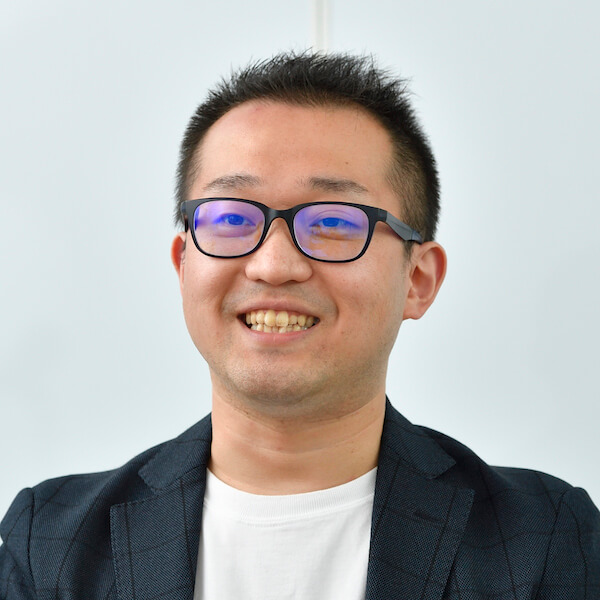
Published : 10/3/2022
We do not overlook the major structural issues behind individual topics in policy
My formative experiences with my grandmother’s dementia
Whenever someone asks me about my goals or the reason for working at HGPI, no matter what they ask, the first thing I will talk about is my grandmother’s dementia.During my early years in elementary school, my grandmother was diagnosed with early-onset Alzheimer’s disease, also known as younger- or early-onset dementia.
My grandma was an active person and was the heart and soul of our family. Now, most of my memories about my grandmother are seeing her gradually losing her ability to communicate. While the consultation opportunities and the support system for dementia patients and families are advanced today, when I was younger the Long-Term Care Insurance System was not established yet, and my family was facing an extremely difficult time. Our family conversations were always about Grandma’s dementia. We did not have much contact with our relatives, to begin with, and we did not have many people to rely on, so my whole family was soon exhausted.
A person’s disease can not only strain relationships among family members, but it can also affect the lives of surrounding people or change their outlook on life. This reality I faced as a young child gave me more than enough reason to think about how I wanted to live my life.
Words from a mentor that helped me face my feelings
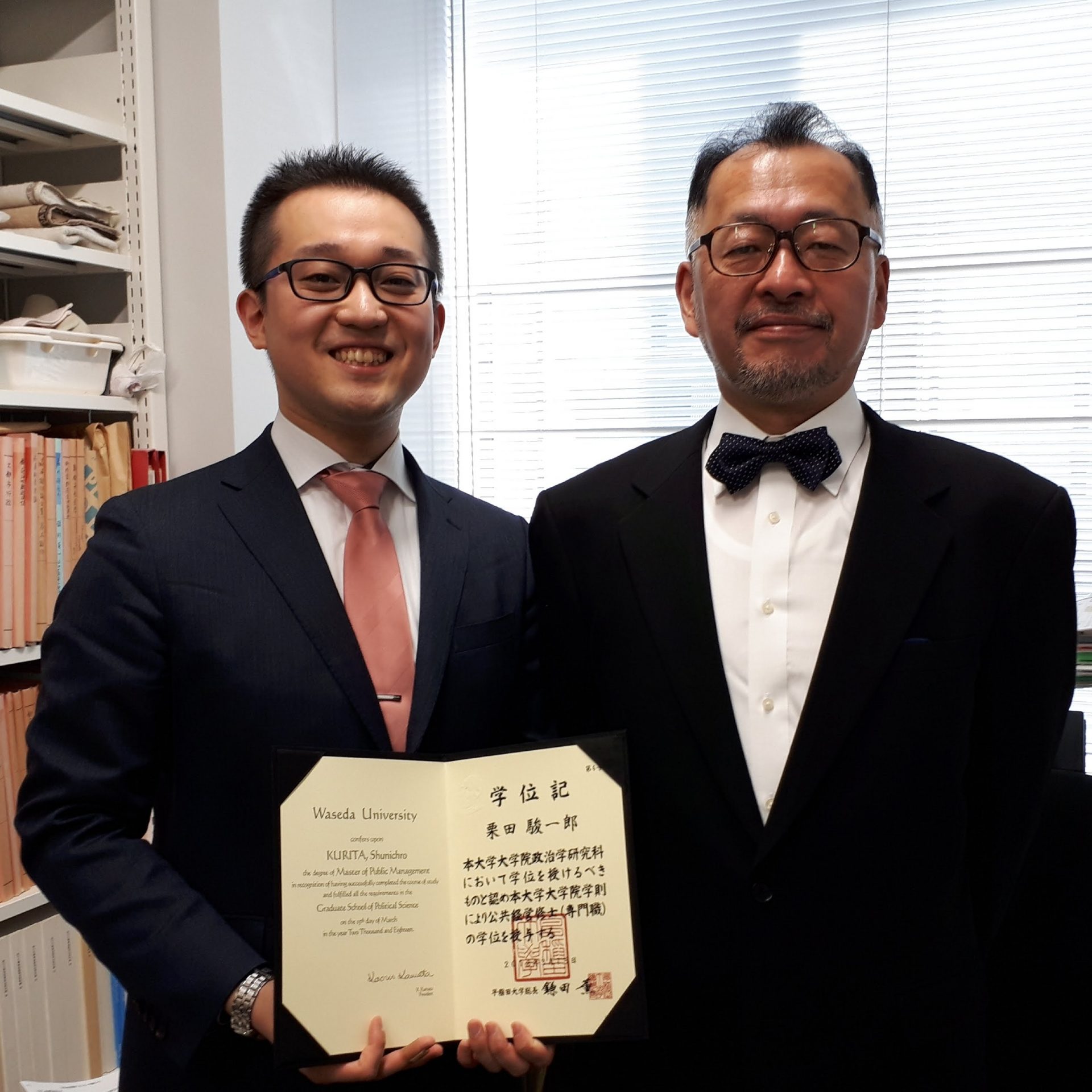
During middle and high school, I became interested in topics that are civics-related, like policy, economics, and ethics after my experience with my grandmother’s dementia. My budding interest in dementia began to manifest in more concrete thoughts like, “I want to solve the problems faced by people living with dementia and their surrounding family members through policies and systems.” When I was in high school and university, being inspired by the Cancer Control Act, I started telling people that I want to become a politician and create “Dementia Control Act” or an ordinance for dementia.
When I entered university, I majored in political science and joined a program that focused on local governance. I learned many important things from my mentor, Professor Takaharu Kohara. He taught me how to think about politics and policy and how to navigate my way through learning and studying. He is usually a quiet and reserved person, but whenever we discuss academics or politics he will talk with great passion.
Among the many things I learned from Professor Kohara, there is one saying that I cherish very much. It was one of the messages that was posted for graduating students on the program website. He said, “it is my hope that you do not overlook the various injustices and forms of oppression in the world. See yourself in people who are suffering and devote your passion to thinking of their pain as your own. Do not stay silent to those who inflict injustice or oppress.” These words made me realize what I had to do in the future.
Opportunity at HGPI While Searching for a Way to Get Involved
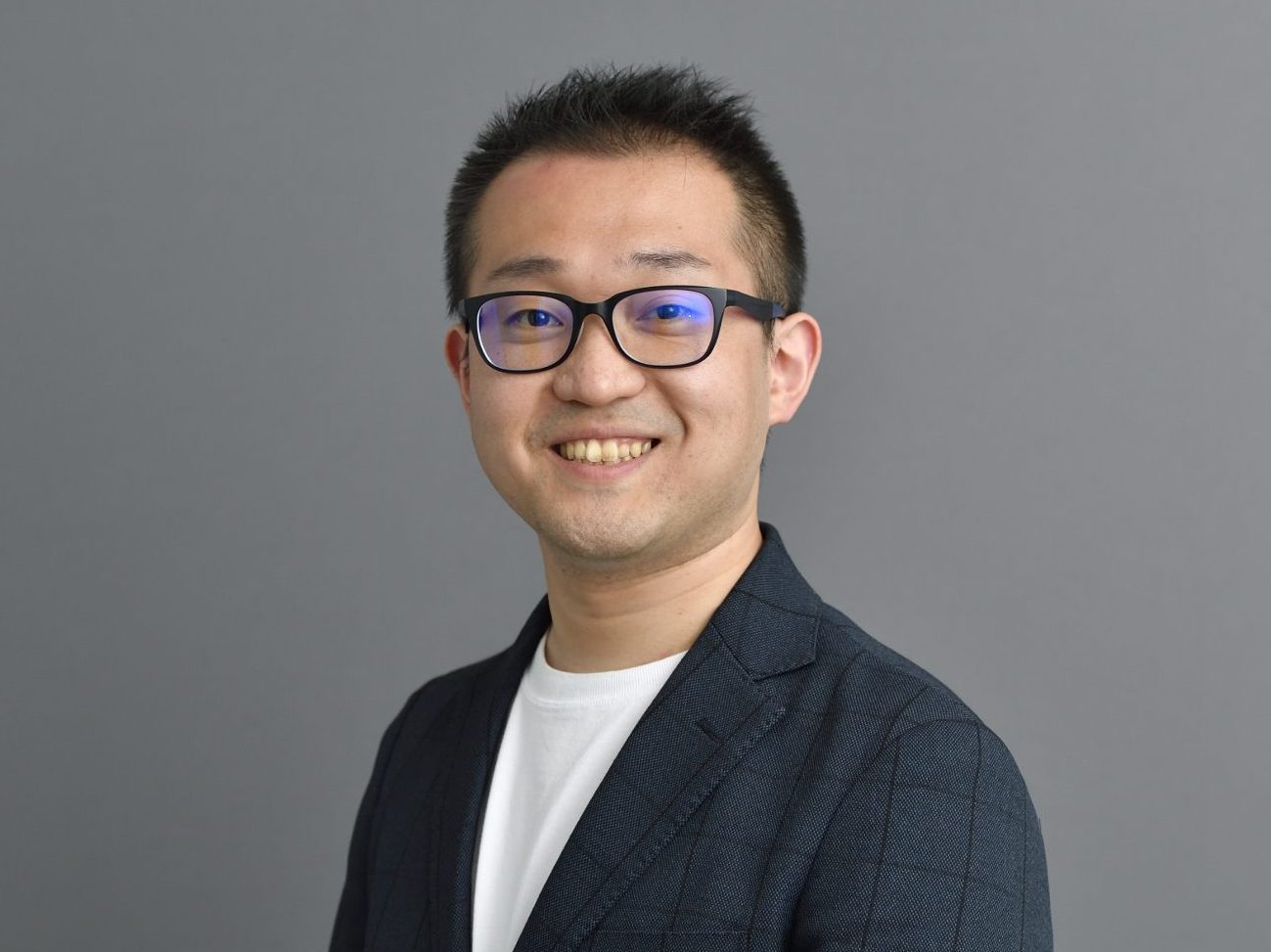
After completing my undergraduate degree, I began working at a non-life insurance company. While I experienced many uncertainties when choosing a career, I picked the company that had been the most attractive during my job search. I was blessed with many wonderful colleagues, including those who were my seniors as well as other new entrants. I learned how to rise to new challenges while upholding traditions and formalities and the importance of working with pride in one’s employer. I was assigned to a department that handled motor vehicle accidents. This provided me with many opportunities to speak to our customers or the other parties directly, which gave me a deep sense of my effectiveness and made each day fulfilling.
However, my desire to be involved in the issue of dementia addressed through policy was growing stronger day by day. Around that time, an acquaintance in academia who I knew from my days in the program at university told me HGPI was looking for young staff members for a dementia project. As I still had so much to learn about being a company employee and a fully-fledged member of society, the prospect of a career change made me very hesitant. Thinking back to the words of my mentor and feeling that there was something only I could accomplish by making the most of my past experiences, I decided to approach HGPI. Thinking that I also wanted to learn public policy from scratch, I also enrolled in graduate school. As a result, I was once again able to study under my mentor from my undergraduate days.
With a new job during the day and graduate school at night, it was a busy period for me, but the staff at HGPI was supportive of my dual roles and they were accommodating with working hours. I think the reason I was able to complete my Master’s Degree in two years was thanks to the environment at HGPI, which allows for diverse work styles, and because I had superiors and colleagues who encouraged me in each of my endeavors.
As a non-profit, independent, small think-tank, HGPI can engage in many areas
When asked about HGPI’s greatest asset, my immediate reply is, “the people.” I am not only referring to the diverse staff members who are currently at HGPI, but also the people who are outside of HGPI and who are connected to us through our projects. HGPI is not a research think tank, so each of its projects is advanced with participation from various outside specialists representing industry, Government, academia, and civil society.
While the people who come together to work on our projects may have different positions, they all possess the desire to see policy progress in each respective area. The people I build relationships with through projects are valuable assets for me. They challenge me with new perspectives and allow me to exchange information and opinions even after the projects are completed.
There are also many things HGPI can do because it is a small-scale, non-profit, independent think tank. HGPI sets up new projects each year based on proposals from staff members, and proposals that are seen as necessary have plans drawn up without delay. This is, of course, because each staff member keeps a close eye on various social trends in addition to the field of health. This freedom of activity granted to its staff members could be considered another unique strength of HGPI. I have launched many new projects myself, and have never encountered any internal opposition.
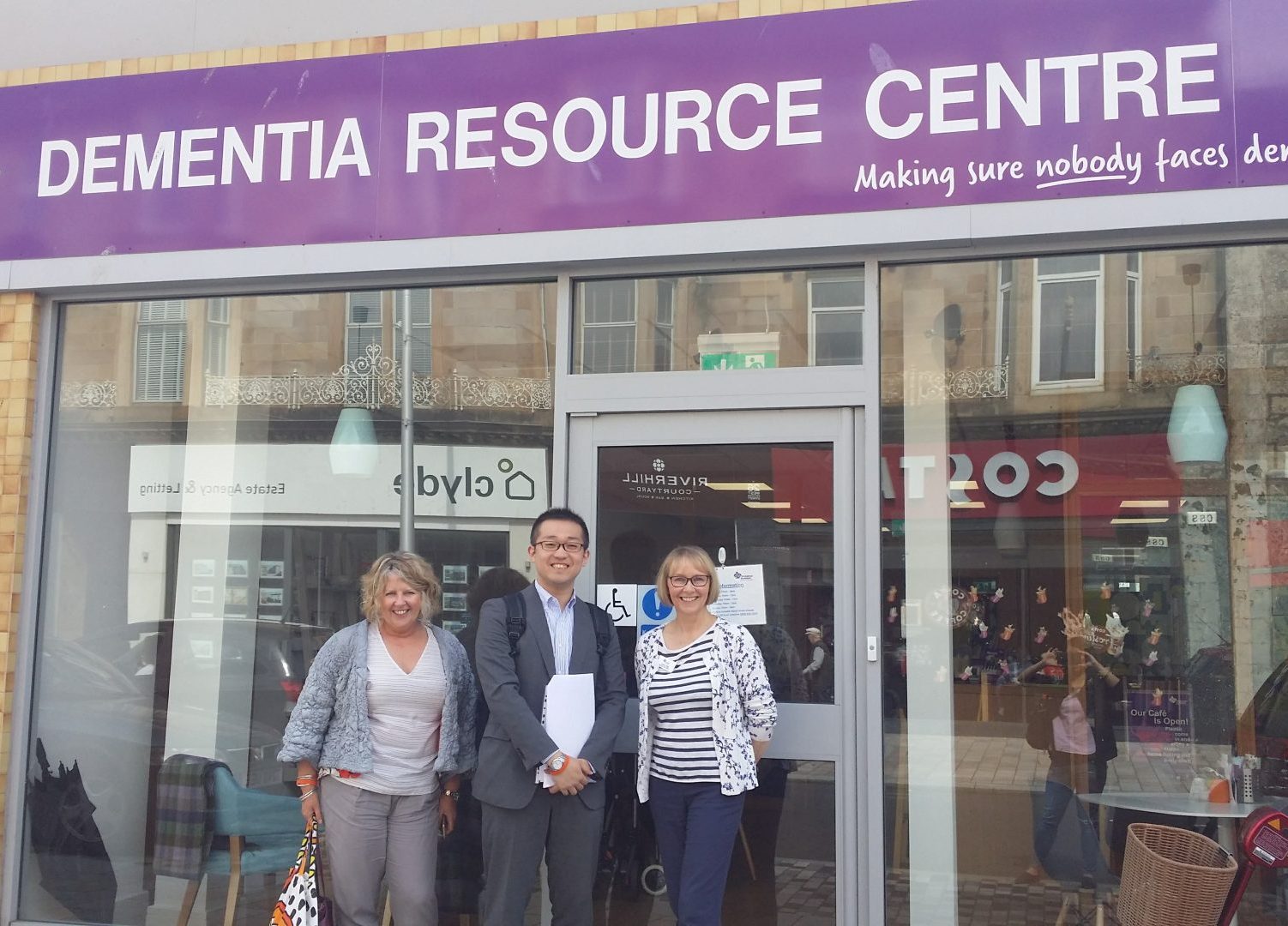
Another personal challenge I was able to conquer after joining HGPI was having my first global experience. Until I joined HGPI, I had never traveled abroad. I didn’t even know how to take an international flight, nor did I have a passport. One day, the decision was suddenly made that I would be going on official business overseas. I rushed to get my passport and I went to Paris. It was almost as if I was being dragged there by my boss. When I think that I managed to successfully complete my first overseas trip by learning the basics – like going through security checkpoints and immigration – completely on the fly, I can now look back and laugh. They are good memories. These experiences have enabled me to perceive myself in better terms. They have made it possible for me to broaden my activities, as well. For example, I have built a relationship with an NGO that provides support for dementia in the U.K. who I now visit frequently and exchange opinions with. These interactions are reflected in my policy recommendations. I have also been able to provide reports on policy trends in Japan for international patient advocacy organizations. Sometimes, I even give interviews to media from overseas.
We do not overlook the major structural issues behind individual topics in policy
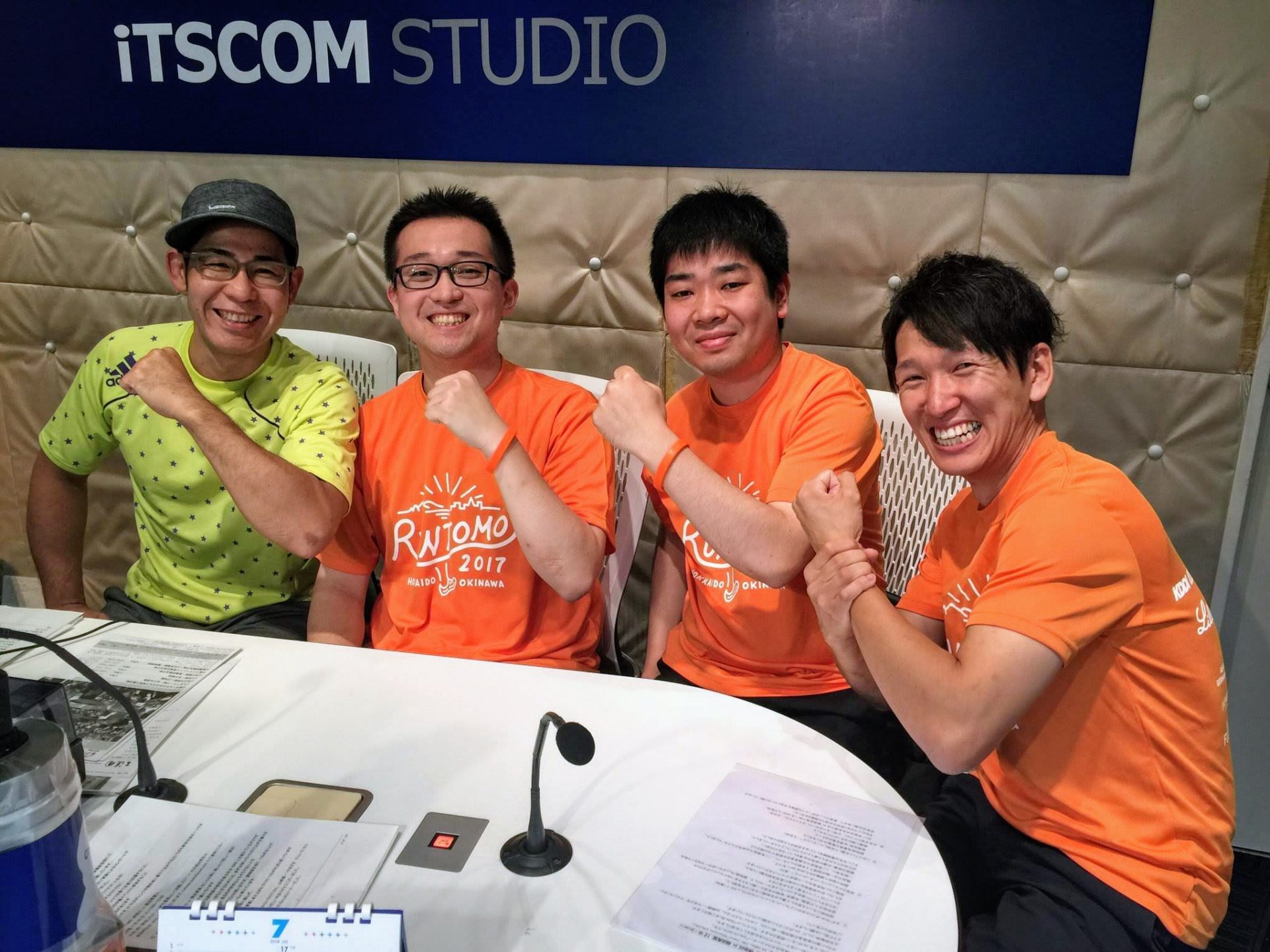
As someone whose life was affected by a family member’s dementia during my childhood, I now spend my days working to address dementia from the perspective of policy. Since I am not a healthcare specialist, I sometimes wonder if my efforts truly benefit anyone.
Even if we cannot be of direct assistance to the patients we meet, I believe we can help transform the face of society that surrounds patients and shift it in a direction that is “less evil.” The definition of “good” varies from person to person, so we cannot decide what defines “good” all by ourselves. Even so, I think it is our duty to create opportunities to examine desirable actions to prevent current problems facing society from growing worse and to communicate the direction for society to take.
To accomplish this, we must not overlook the structural issues behind individual policy. In addition to dementia, I am also responsible for projects in mental health, children’s health, and other fields where significant structural issues affect individuals, families, and society. While being aware of those structural issues, I would like to face the “injustice” and “oppression” in our world.



